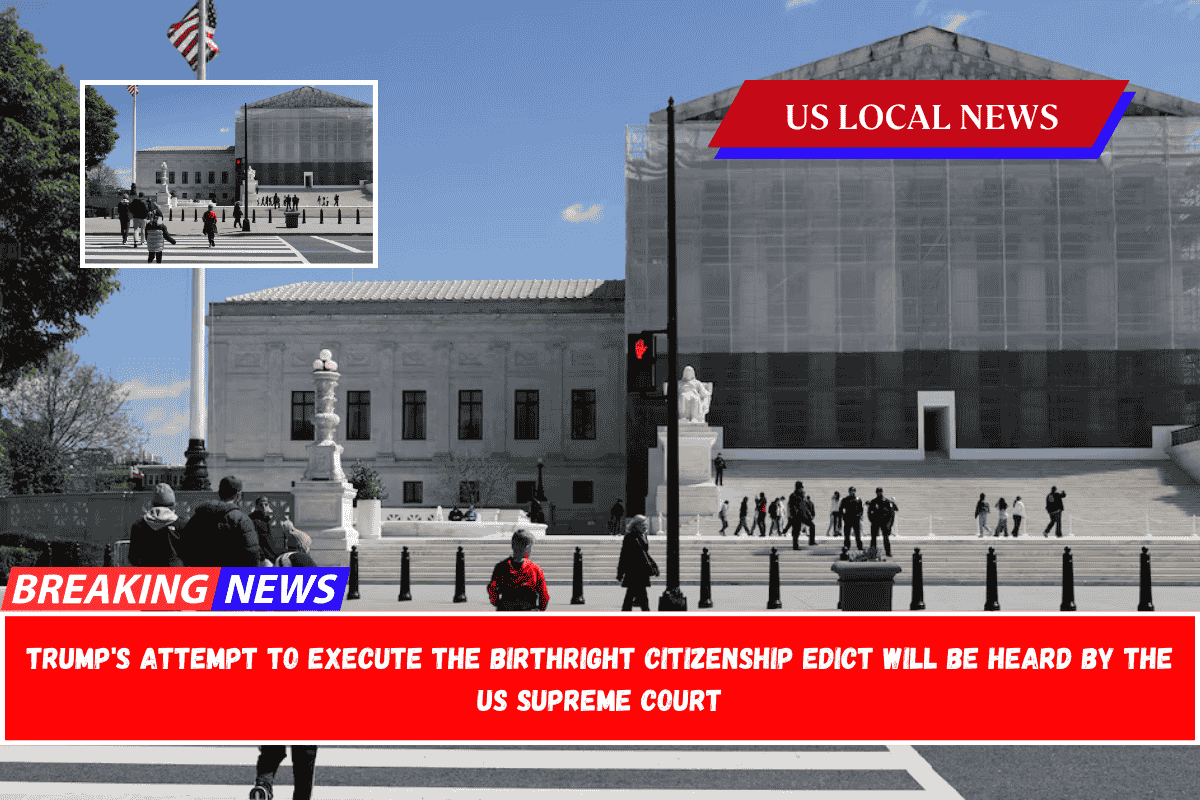WASHINGTON (Reuters) –Officials from the Trump administration could face criminal contempt charges for violating a U.S. federal judge’s order halting deportations of alleged Venezuelan gang members who had no chance to challenge their removals, the judge said Wednesday.
In a written decision, U.S. District Judge James Boasberg in Washington found “probable cause” to hold officials in criminal contempt of court, stating that the administration demonstrated “willful disregard” for his March 15 order prohibiting deportations to El Salvador under the 1798 Alien Enemies Act.
Many of the migrants’ lawyers and family members argue that those deported are not gang members and were never given the opportunity to contest the US government’s claim that they were.
Wednesday’s decision is the closest any court has come to suggesting punishment for the administration since President Donald Trump returned to the White House on January 20, escalating the conflict between the judicial and executive branches.
The Justice Department appealed the decision to the D.C. Circuit Court of Appeals.
Boasberg stated that the administration could still avoid being held in contempt by taking steps to comply with his order, such as allowing migrants to challenge their removals in court.
He gave the administration until April 23 to outline what steps it would take, or to identify the officials who chose to ignore his order so that they could potentially face prosecution.
The judge noted that Secretary of State Marco Rubio retweeted an X post in which El Salvador President Nayib Bukele shared a link to a news story about Boasberg’s order blocking deportations with the caption, “Oopsie…Too late.”
“Boasts by Defendants intimated that they had defied the Court’s Order deliberately and gleefully,” the ruling states.
White House Communications Director Steven Cheung announced on X that the administration would seek immediate appellate relief.
A spokesperson for the Justice Department responded: “His (Boasberg’s) underhanded attempt to maintain power over this case is a judicial power grab that the Department of Justice will fight by all means necessary.”
‘STRONG REBUKE’
The Trump administration is facing over 150 legal challenges to its policies. Democrats and some legal analysts claim that in some cases, officials are dragging their feet in complying with unfavorable court orders, indicating a potential willingness to disobey an independent, coequal branch of government.
On Tuesday, U.S. District Judge Paula Xinis in Maryland said she would expand an investigation into whether the administration violated an order requiring the return of Kilmar Abrego Garcia, a man the administration has admitted was wrongfully deported to El Salvador, but she would not hold the administration in contempt just yet.
On Wednesday, the Justice Department filed an appeal against Xinis’ order, which would have required officials to answer questions about the steps they had taken to facilitate Abrego Garcia’s return.
Boasberg’s order extends further. He stated that if the administration does not remove its contempt, he may require officials to submit sworn declarations or face questioning under oath. The judge stated that if the government refuses to take up the case, he may appoint another lawyer to act as prosecutor.
“It’s a very strong rebuke to the administration,” said Professor Jonathan Hafetz from Seton Hall University School of Law.
Trump called for Boasberg’s impeachment for blocking the deportations. That prompted a rare rebuke from U.S. Chief Justice John Roberts, who stated that disagreements with court orders should be resolved through appeals rather than impeachment.
The judiciary is not the only institution in the United States under pressure. The Trump administration has targeted institutions that have long valued their independence from partisan politics, such as universities and law firms.
‘OOPSIE’
The case stems from Trump’s use of the Alien Enemy Act. It is best known for the internment and deportation of Japanese, German, and Italian citizens during WWII. Some were United States citizens.
Lawyers for migrants in El Salvador told Reuters that they have not been able to visit, speak with, or learn about their clients’ whereabouts and conditions.
“Today’s decision confirms what we have long known: the government’s conduct in this case is illegal and a threat to people and our Constitution,” said Skye Perryman, president of Democracy Forward, an advocacy group for migrants involved in the case.
It was unclear whether the threat of contempt would force the administration to comply with Boasberg’s order. In general, the threat has been sufficient to induce government officials to comply. Government officials are rarely held in contempt and threatened with jail time.
According to the United States Congressional Research Service, an independent entity that provides policy analysis to lawmakers, the president has the authority to pardon people convicted of criminal contempt.
During his first term in office in 2017, Trump pardoned former Arizona lawman Joe Arpaio, who had been convicted of criminal contempt in a racial profiling case.










